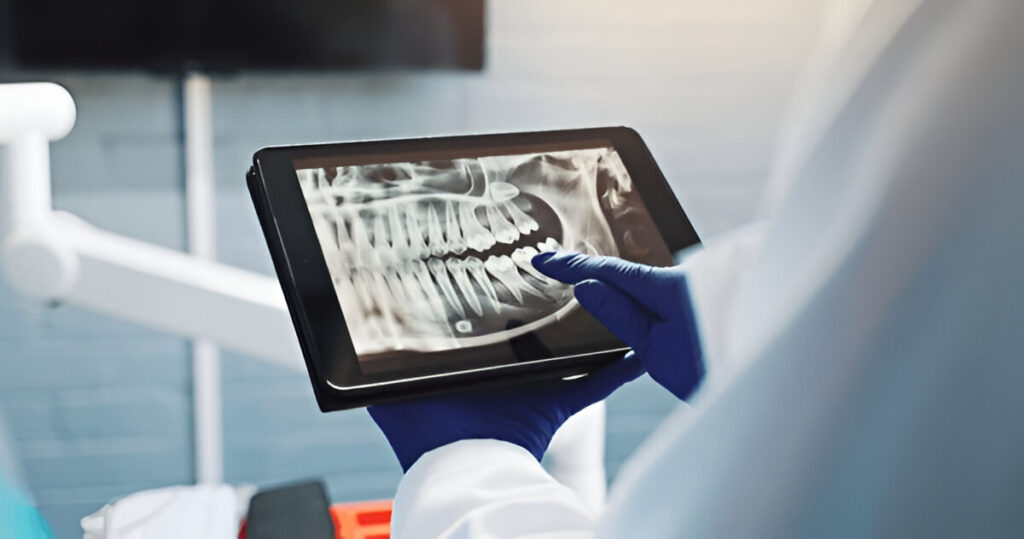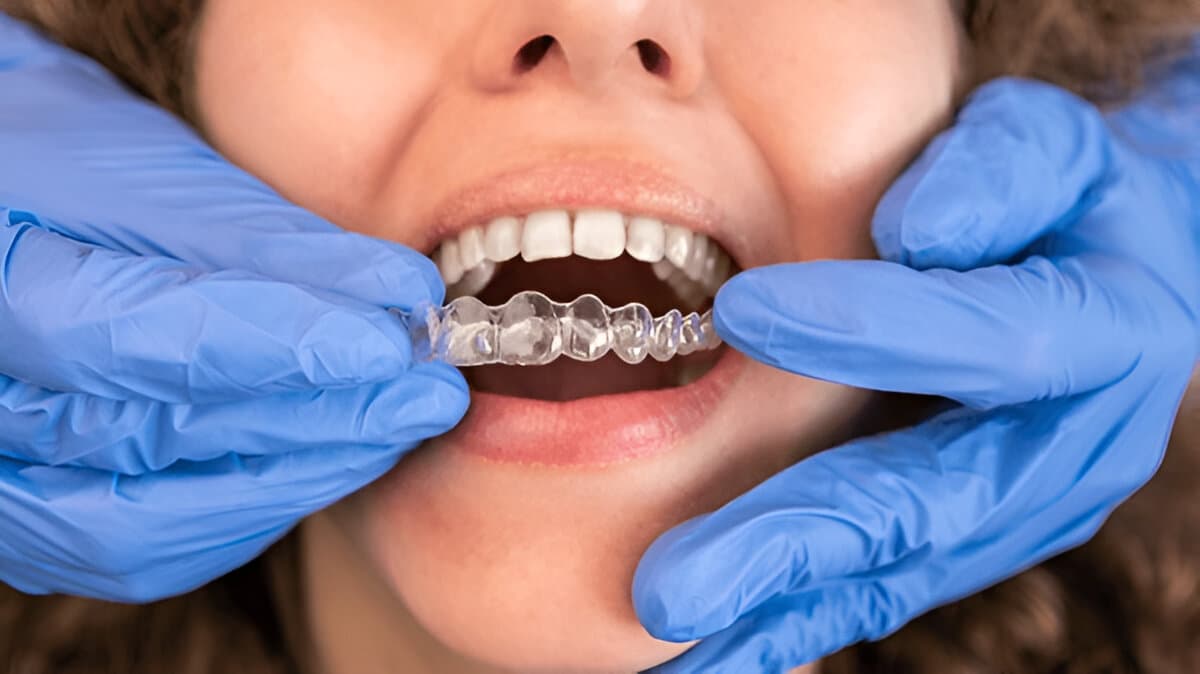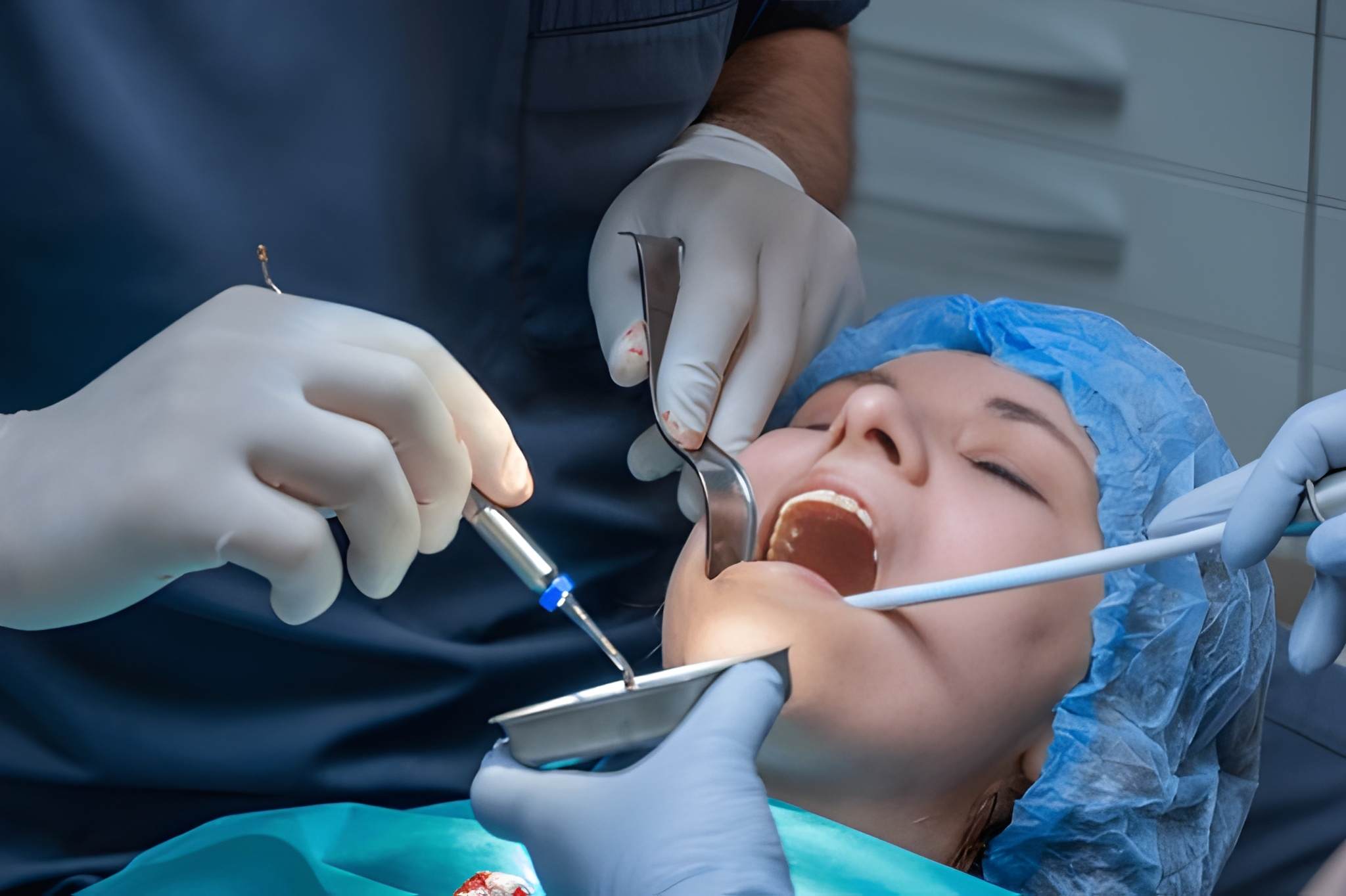Over the past few years, vaping has grown in popularity among adults and teens who consider it a healthier alternative to tobacco smoking. As much as it’s presented as a cleaner or less risky version, new dental research paints a different picture. Vaping and oral health go together and not for good reasons.
Dentists throughout Scotland are publicizing the impact of vaping on teeth, gums, and oral health as a whole. Although vaping reduces some of the toxins in regular tobacco, the vapor remains full of substances that can be harmful to your mouth, disrupt saliva flow, and be detrimental to your long-term dental health.
In this article, we’ll explore how vaping affects oral hygiene, its role in gum disease and tooth decay, and why quitting could be the best decision for your smile.
What Is Vaping and How It Impacts Dental Health
Vaping entails the inhalation of an aerosol (vapor) from an e-cigarette or equivalent device. The vapor is usually made up of nicotine, flavouring compounds, propylene glycol (PG), vegetable glycerin (VG), and miscellaneous chemicals. Though harmless relative to tobacco smoke, these components still present a number of threats to oral tissues.
Studies indicate that chemicals in e-liquids — even those marked as “nicotine-free” — can cause irritation of the gums and soft tissues in the mouth. This causes chronic inflammation, erosion of tooth enamel, and higher vulnerability to decay over time. Vaping effects on gums and mouth can be especially harsh if vaping is incessant or accompanied by neglect of oral hygiene.
Does Vaping Damage Teeth?
Most people wonder, does vaping hurt teeth? The response is yes — although in a different way than with traditional smoking. Cigarettes release tar and smoke that stain teeth and irritate the gums, while vaping puts sugary, acidic, and drying chemicals in your mouth.
E-liquids typically include sweeteners and flavorings that raise mouth acidity, which softens tooth enamel. As soon as enamel begins to dissolve, your teeth are more sensitive and susceptible to cavities. The PG and VG base in vape liquids also tends to adhere to the teeth, leaving a sticky film that holds bacteria — speeding plaque growth.
Even without the nicotine, vapour chemicals will dry out the mouth, allowing bacteria to prosper more easily. With reduced saliva production, the mouth no longer has its natural cleansing function and is more exposed to decay and infection.
The Connection Between Vaping and Gum Disease Risk
One of the most dangerous vaping gum disease risk factors is the impact of nicotine on blood flow. Nicotine constricts blood vessels to the gums, starving them of oxygen and nutrients. When the gums do not have enough blood, they are more prone to infection and heal more slowly after dental procedures.
Over time, this limited circulation can lead to gum recession — when the gums recede from the teeth, revealing their roots. This not only makes the teeth more sensitive but also creates openings where bacteria can collect.
Vaping-induced gum disease may advance from gingivitis (mild gum inflammation) to periodontitis, a more serious form that leads to the destruction of bone tissue and loss of teeth. If not treated, it may also impact your general health through systemic inflammation and cardiovascular issues.
Vaping vs Smoking: Dental Impact Comparison
Most users turn to vaping to be away from the risks of smoking, yet the comparison between vaping vs smoking dental effects reveals that both have negative effects.
- Smoking: Has tar and hundreds of poisons that stain teeth, inflame gums, and raise mouth cancer risk. It also leads to bad breath and promotes gum receding.
- Vaping: While it does not contain tar, it can still introduce chemicals into your mouth that change saliva flow, dissolve enamel, and harm gum tissue. The acidic vape with sweet flavorings makes cavities and gum disease more likely.
In brief, though vaping minimizes the body’s exposure to tobacco toxins, it is still damaging to oral health in several respects. Both habits inhibit healing, dry the mouth, and make it more difficult for the body to resist infection.
How Vaping Affects Oral Hygiene
In order to appreciate how vaping impacts the oral hygiene, one must take into account the mouth’s natural defense mechanisms. Saliva is responsible for removing food particles, neutralizing acids, and flushing out bacteria. Vaping can limit the production of saliva, and the bacteria will multiply freely and cause plaque and bad breath.
Vaping also alters the balance of bacteria in your mouth. Studies indicate that people who use vapes tend to have more harmful bacteria associated with gum disease and cavities. The shift in bacteria goes not only for teeth but also for the tongue and inner cheeks, leading to irritation and sores.
If you’re a regular vaper, expect these symptoms:
- Dry mouth (xerostomia) that persists
- Bad breath or metallic taste sensation
- Red, inflamed, or bleeding gums
- Sensitive teeth
- Teeth discolouration or yellowing
Good oral health including twice-a-day brushing, flossing, and regular professional cleaning is critical to reduce the amount of damage vaping will do.
Vaping and Its Relationship to Tooth Decay

Another significant issue with vaping and oral health is tooth decay. Most of the vape juices are sweetened for flavor, but these acids and sugars fuel bacteria that destroy the enamel. Even nic-free e-liquids can reduce mouth pH to foster an acidic environment that demineralizes tooth surfaces.
As enamel is lost, teeth are more susceptible to cavities, sensitivity, and stains. When not treated early, those tiny cavities may lead to deeper infections, necessitating fillings, crowns, or even root canal.
Vape users are advised to:
- Rinse with water after they vape
- Use fluoride toothpaste to fortify enamel
- Have their dentist check them every 6 months for early detection and prevention
Dry Mouth: The Hidden Side Effect of Vaping
One of the lesser-talked-about vaping impacts on gums and mouth is dry mouth — a condition that severely impacts oral well-being and comfort. Propylene glycol and vegetable glycerin, both key ingredients in vape liquids, have drying effects. They draw and suck up moisture out of your mouth, causing it to feel parched.
Dry mouth promotes the development of bacteria and plaque, which cause inflammation of the gums, tooth decay, and chronic bad breath. A lack of saliva makes it difficult for your mouth to remove food particles and eliminate acid.
Dentists suggest fighting dry mouth with increased consumption of water, chewing sugarless gum to activate saliva, and staying away from caffeine and alcohol, which can further dehydrate.
Slow Healing and Higher Infection Risks
Vaping also decelerates the healing process of the body. Nicotine constricts blood vessels, diminishing blood supply and hindering tissue repair. Following dental procedures like tooth extractions, fillings, or gum surgery, vape users tend to have longer recovery times and an increased risk of infection.
One of the more unpleasant conditions associated with nicotine use is “dry socket” — a slow-healing tooth socket following a tooth removal. Vapers are more likely to develop this because there is less blood flow and compromised clotting.
Likewise, individuals who vape have potentially lower success rates for dental implants since nicotine influences bone integration and soft tissue healing.
Discolouration and Aesthetic Changes
Although vaping does not create the heavy colouration found with cigarette tar, vapour chemicals and flavourings have a tendency to discolour teeth in the long term. Acidic or sweet flavours deposit a sticky film upon enamel that diminishes the natural lustre and leaves teeth yellow.
Cosmetically oriented patients worried about vaping effects are able to reverse discoloration through professional whitening and cleaning. Yet, repeated vaping will return all appearances to their previous state.
Vaping, Smoking, and the Risk of Mouth Cancer
Despite research on the long-term implications of vaping still in the process of being carried out, there is already alarming concern that long-term use can heighten the risk of oral cancer. Vape liquids most commonly contain volatile organic compounds, heavy metals, and carcinogenic chemicals.
Smoking has been proven over the years to be a leading cause of mouth cancer, but vaping can also inject toxic compounds that stimulate or damage oral tissues. Recurring ulcers, white or red patches in the mouth, or swelling must always be examined by a dentist.
The disease must be detected early. If detected in its early stages, mouth cancer can be effectively treated with surgery or radiotherapy.
The Role of Dental Scotland in Supporting Your Oral Health
At Dental Scotland, patients receive advanced preventive and restorative care tailored to protect their smiles. Whether you’ve been affected by vaping and oral health issues or are simply looking to improve your dental hygiene, their experienced team offers comprehensive services.
From precise aligners to straighten misalignment, composite bonding to fix enamel breakdown, and dental implants to restore lost teeth, all treatments are aimed at building confidence and health. Their experts also offer standard cleanings, gum treatment, and oral health exams to avoid continued damage inflicted by vaping or smoking.
By focusing on education and prevention, Dental Scotland helps patients make informed choices about their oral habits. If you’re concerned about how vaping affects oral hygiene or have noticed symptoms such as bleeding gums, bad breath, or sensitivity, schedule a consultation today. Early intervention can protect your teeth, gums, and overall wellbeing.
Conclusion
Vaping can appear to be an innocent fad, but its effect on oral health in the long term is quite different. From erosion of the enamel and gum disease to dry mouth and impaired healing, the dangers are undeniable.
Grasping the vaping gum disease threat and proactive measures towards improved oral care can be the difference between damage and beauty. Regular visits to your dentist, superior hygiene, and contemplating lifestyle changes are all essential to keeping your smile.
For those wanting to restore or preserve their oral wellness after vaping, Dental Scotland offers skilled care with the latest technology and patient-centered treatments. From cosmetic restoration to preventive cleanings, or through education on oral health and vaping, their staff is committed to helping you achieve a brighter, healthier smile for life.





